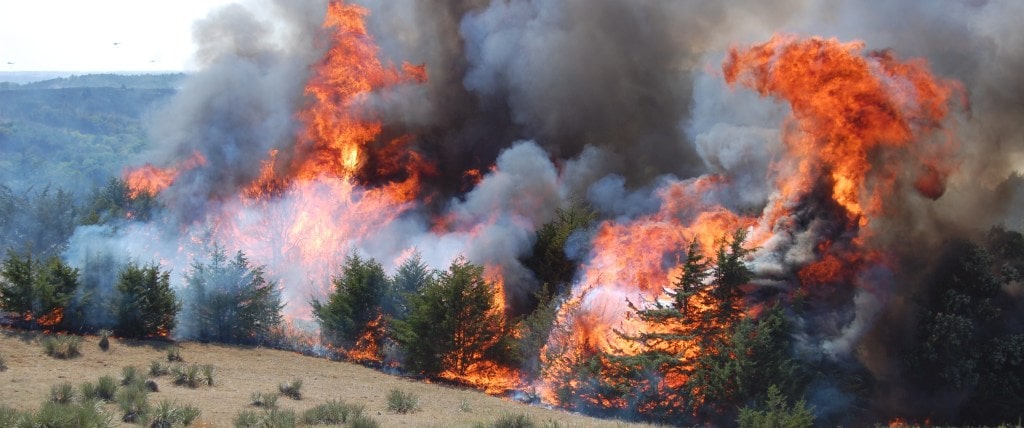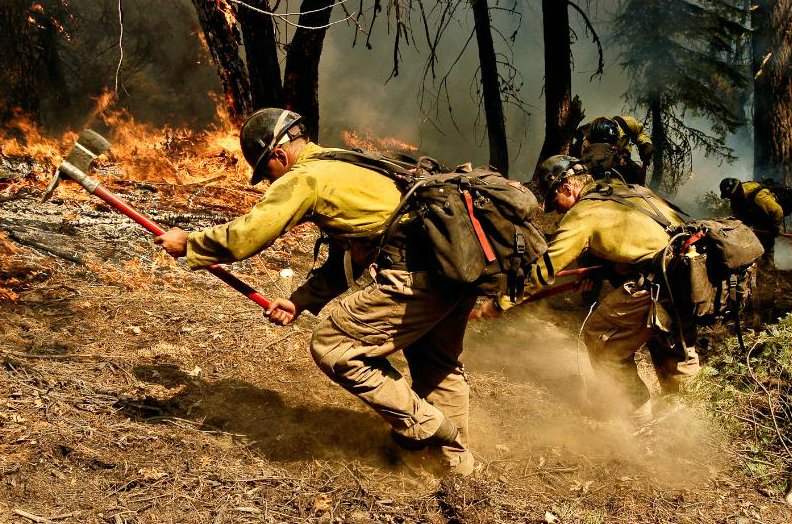
Weather conditions affect wildfires in three key ways that can lead to easier suppression or an out-of-control blaze. The three major factors for the development or suppression of a wildfire are wind, humidity, and air temperature.
Wind
Wind is the most obvious driver of a wildfire. As the wind picks up it flattens out the flames, bringing them closer to ground level vegetation. When the flames are closer to the ground, vegetation heats up and dries faster. This can lead to a fire quickly intensifying and spread rapidly. When wildfires are intense they can also create their own weather patterns making conditions around the fire extremely dangerous for firefighters.
Humidity
The relative humidity is most simply how much water the air can hold. Humidity is extremely important for taming a fire. The drier the air is the faster vegetation dries out, which intensifies a blaze. Consistent rain, even if it is only a small amount, is key for fire suppression. Humidity saps large amounts of energy from wildfires so even if there is no intense downpour consistent high humidity can help fire crews.
Temperature
Fire needs three ingredients to ignite: fuel, oxygen, and heat. In a forest, both fuel and oxygen are readily available. The main job of fire crews is to eliminate one of those three ingredients. Hotshots spend much of their time digging fire lines which eliminates fuels on the ground so the fires cannot advance. When air temperatures are cooler fires tend to grow at slower rates. This is due to the fuel simply being cooler, which means it will take more energy (heat) to make those materials combust.

How excess fuel built up over decades of poor forest management influences fires…
If you guys want to fix the problem why don’t you focus on the main culprit?
Quick answer: Money. The federal government was historically hesitant to spend on thinning activities (brush removal, monitored undercover burning, etc) and the effort will take many years to really catch up. Here in California, the feds control around 57% of the wildlands, private ownership accounts for 40%, and the state controls 3%. California typically has multiple programs to assist private ownership with the cost of thinning, but the that is mostly for the non-commercial owners. The corporate properties and huge ag parcels are managed for profit so those owners don’t want to fund understory suppression.
The forrest understory growth was thin enough to easily ride a horse through all but watercourse growth when the west was first settled by non-native folk in the 1800’s. The efforts today basically try to replicate that by cutting and chipping or piling debris for burning during the winter.